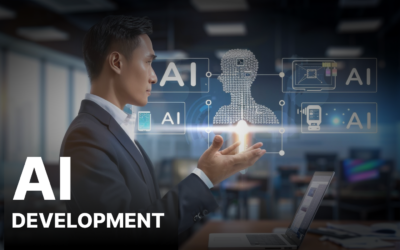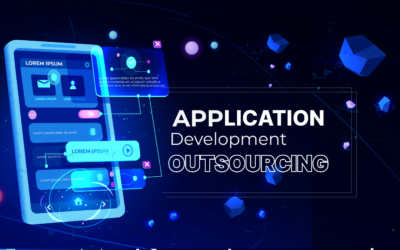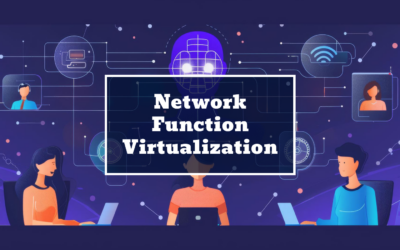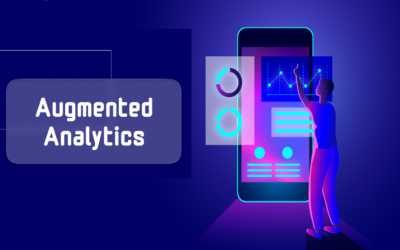What is web 3.0 & how it transforms future of businesses

Introduction:
In the ever-evolving world of technology, staying ahead of the curve is crucial for businesses to thrive. One of the most exciting developments on the horizon is Web 3.0, a transformative evolution of the internet.
In this blog, we will explore what Web 3.0 is, how it works, its key features, and the myriad of opportunities and benefits it offers to businesses.
What is Web 3.0?
Web 3.0, often called the “semantic web” or the “decentralized web,” represents the next phase in the development of the World Wide Web. Unlike its predecessors, Web 1.0 (the static web) and Web 2.0 (the social web), Web 3.0 is all about making the internet smarter and more interconnected.
How Web 3.0 Works?
Web 3.0 operates on the principle of making data more understandable to machines, allowing them to not only process information but also comprehend its meaning. Here’s how it works:
- Semantic Understanding: Web 3.0 relies on semantic technologies that enable computers to understand the context and relationships between data. This means web content becomes more meaningful.
- Linked Data: It’s about linking data in a way that computers can follow these links, enhancing the ability to connect and aggregate information across the web.
- Decentralization: Web 3.0 isn’t controlled by a central authority. It’s decentralized, utilizing blockchain technology to ensure transparency, security, and trust.
- AI Integration: Artificial intelligence (AI) plays a significant role. Web 3.0 systems can use AI to provide more personalized and relevant content and services.
- User-Centric: Unlike Web 2.0, which often relies on user-generated content, Web 3.0 focuses on serving users with tailored, meaningful experiences.
5 Key Features of Web 3.0:
Now, let’s delve deeper into the five key features that define Web 3.0 and set it apart from its predecessors:
- Interoperability: Web 3.0 aims to break down data silos by enabling different platforms and systems to communicate seamlessly. This interoperability fosters a more connected digital landscape, making it easier for businesses to integrate their services and data with others.
- Decentralization: Blockchain technology underpins Web 3.0’s decentralization. This not only enhances security but also reduces the need for intermediaries, enabling peer-to-peer transactions and collaborations, which can reduce costs and increase trust in business transactions.
- Semantic Web: Web 3.0 understands context and relationships between data. This means that when a user searches for “apple,” the search engine can distinguish whether the user is looking for information about the fruit or the tech giant. For businesses, this means more accurate targeting and improved user experiences.
- Personalization: With AI-driven personalization, Web 3.0 can deliver content and services tailored to each user’s preferences and behaviour. This not only enhances user engagement but also offers businesses the opportunity to provide more relevant products and services.
- Smart Contracts: Smart contracts, powered by blockchain, automated and enforced agreements without the need for intermediaries. Businesses can use smart contracts for various purposes, from supply chain management to secure, efficient transactions.
Business Opportunities and Benefits of Web 3.0:
Web 3.0 offers a range of benefits for businesses across various industries. This next evolution of the internet, characterized by semantic understanding, decentralization, and advanced technologies, brings several advantages that can significantly impact how businesses operate and thrive. Here are the key benefits of Web 3.0 in business:
- Enhanced Customer Engagement:
- Personalization: Web 3.0 leverages semantic technologies and AI-driven algorithms to deliver highly personalized content, product recommendations, and services to individual customers. This level of customization fosters deeper and more meaningful engagement with customers, leading to increased loyalty and conversions.
- Improved Data Security:
- Decentralization: Web 3.0 relies on decentralized technologies like blockchain to secure data. This reduces the risk of data breaches and unauthorized access, enhancing customer trust and protecting sensitive information.
- Streamlined Operations:
- Smart Contracts: Web 3.0 introduces smart contracts, self-executing agreements that automate various processes and transactions. By eliminating intermediaries and manual intervention, businesses can streamline operations, reduce costs, and minimize errors in areas such as supply chain management and contract execution.
- New Revenue Streams:
- Interoperability: Web 3.0 promotes interoperability among different platforms and ecosystems. This enables businesses to explore new revenue streams through collaborations, partnerships, and innovative business models. For example, businesses can offer complementary services or tap into decentralized finance (DeFi) opportunities.
- Data Monetization:
- Data Marketplaces: Businesses can securely monetize their data through data marketplaces. This means companies can sell or share their data with other entities, such as researchers, marketers, or data analytics firms. It opens up additional revenue opportunities by leveraging the value of data assets.
- Trust and Transparency:
- Blockchain: The decentralized nature of Web 3.0, powered by blockchain technology, enhances transparency and trust in business transactions. Customers and partners can have greater confidence in the integrity of agreements, transactions, and supply chain processes.
- Innovation and Competition:
- Lower Barriers to Entry: Web 3.0 lowers barriers to entry for smaller players and startups, enabling them to participate in a more interconnected digital ecosystem. This increased competition can drive businesses to innovate and offer better products and services to remain competitive.
- Efficient Resource Utilization:
- Resource Sharing: Businesses can optimize resource utilization by sharing assets and services within decentralized networks. This can lead to cost savings and more efficient resource allocation.
- Global Reach:
- Global Accessibility: Web 3.0 facilitates global access to information and services. This is especially beneficial for businesses looking to expand their reach to international markets and tap into a wider customer base.
- Data Ownership and Control:
- User Empowerment: Web 3.0 empowers users to have greater control over their data. This aligns with evolving data privacy regulations and can improve the perception of businesses that prioritize user data rights.
Conclusion:
Web 3.0 is poised to be a game-changer for businesses. Its semantic understanding, decentralized nature, and AI-driven personalization promise to transform the way we interact with the digital world. By embracing Web 3.0, businesses can enhance customer engagement, improve data security, streamline operations, explore new revenue streams, and monetize data effectively. As Web 3.0 continues to evolve, forward-thinking businesses should consider how to leverage its potential for a competitive edge in the digital landscape.
Are you looking for any IT Services such as Web design and Development, Professional/Staff Augmentation Services, Cloud Computing, Mobile App Development, Digital Marketing Services and more? Connect Stridefuture Technology, which helps to meet your requirements.
{StrideFuture Technology, a full-service company specializing in Software Solutions and Consultancy services. We specialize in Personal, Business, IT Services, Web design and Development, Mobile App Development, Digital Marketing Services, and much more you can dream Virtually with us! Reach out for more service at StrideFuture Technology.}









